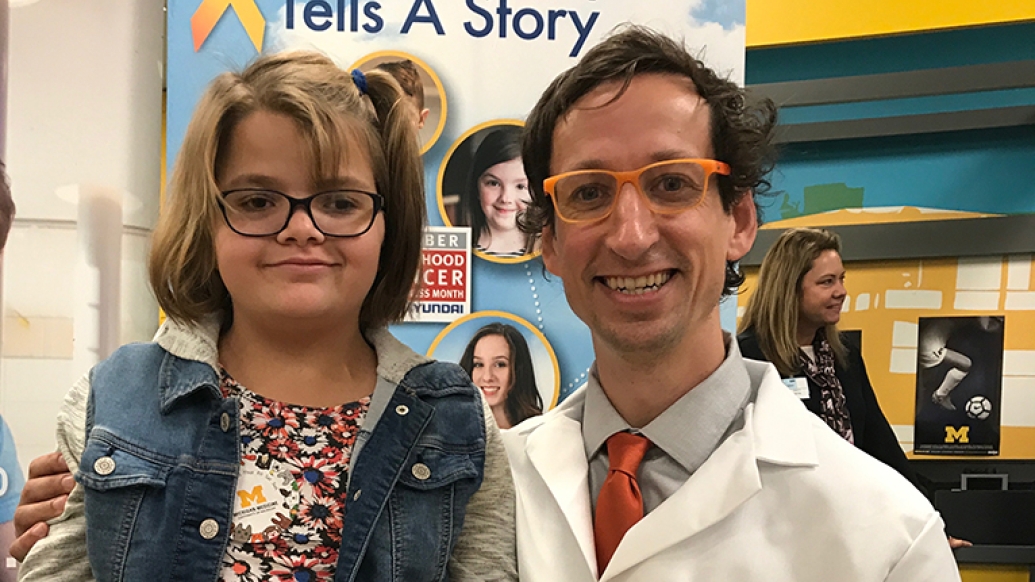As her young daughter battles a brain tumor, a mother advocates for more research — and funding — to combat childhood cancers of all kinds.
1:00 PM
Author |

Our daughter, Ally, has been in cancer treatment most of her life.
She was diagnosed with a brain tumor and began chemotherapy at age 3. Her first chemotherapy treatment was before her first day of preschool.
MORE FROM MICHIGAN: Sign up for our weekly newsletter
Our initial line of defense were the chemo drugs vincristine, which came on the market in 1961, and carboplatin, which became available in 1986.
To put that into context, consider that the first disposable diapers came out in 1961, a time when people were watching The Andy Griffith Show on television. In 1986, the world was introduced to the laptop computer; kids were playing with Nintendo.
Think of how far those technologies have evolved since then.
And yet we're still using the same drugs to fight childhood cancer. Of all the federal funding for cancer research, just 4 percent goes toward pediatrics.
In Ally's case, the drugs stopped working after about one year of treatment. That put us back at square one, resetting her treatment with a new plan of attack. Then, when that didn't work, another plan. Then another.
In all, we tried four experimental protocols to combat her cancer between 2012 and 2014.
With each new drug, we signed more consent forms — agreeing to things no parent wants to imagine but feeling unquestionably confident that the risks would be worth it to have our daughter here and healthy with us.
SEE ALSO: Chad Carr Movement Accelerating Childhood Brain Cancer Research
Ally (pictured above with Michigan Medicine pediatric oncologist Carl Koschmann, M.D.) completed treatment Aug. 4, 2014. For a brief moment, we had a break and life felt normal.
Then, in January 2016, her tumor became more aggressive.
She tried another drug that worked for a year and became less effective at controlling her tumor. Unfortunately, she's tried every available protocol. We find ourselves yet again waiting for something new to try, for a new drug to enter clinical trials so we have an option for Ally.
We don't want people to feel sympathy for us. In fact, we consider ourselves among the lucky ones. Ally, now 9 years old, is here with us — going to school, playing with friends and sharing holidays with the family.
Not every parent can say the same. In 2017, there are still too many childhood cancers that are terminal and we have lost so many friends to the disease.
But during Childhood Cancer Awareness Month in September, or anytime you hear someone talking about how children are waiting for cures, please know that it's not an abstract saying. Kids are waiting for cures, and we're proof that it isn't just lip service.
Ally is still waiting.
University of Michigan C.S. Mott Children's Hospital strives to find better, safer cures for childhood cancer. Learn how you can join the fight to Block Out Cancer.

Explore a variety of healthcare news & stories by visiting the Health Lab home page for more articles.

Department of Communication at Michigan Medicine
Want top health & research news weekly? Sign up for Health Lab’s newsletters today!





